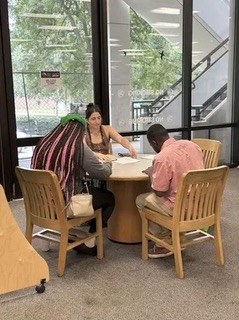by Tad MacMillan
Tad MacMillan worked for Clarke County Schools for 32 years as a teacher, instructional coach, and principal. He currently works as an assistant professor in the College of Education at Piedmont University.
As I look back over my 32 years in K-12 public education, I believe that learning about and working alongside my staff to implement Restorative Justice practices at my school was the most transformative experience of my career.
Over the years, I was always aware that the way we “did discipline” in our schools was not efficient or effective. In my time as a principal at both the elementary and the middle school level, I was always looking for a better approach, an approach that truly was educational for both the students who committed infractions as well as for students only peripherally involved.
Despite my efforts to create a disciplinary system that was transparent and supportive of the whole school community, the opacity of our efforts could not be denied. Students made poor behavior choices and once it was clear that the classroom behavior management system was not working, they were sent to the office or received a disciplinary referral and became the administration's responsibility. The whole approach was opaque and bifurcated, in that everyone impacted by the poor behavior choices was not involved in the remedy and the remedy was almost separate from the educational intent of the school. AND, recidivism as well as unproductive consequences (suspension and expulsion) were the results.
Although learning about restorative justice practices was not a panacea, it certainly provided me with both a rationale and a system that revolutionized my approach. (Yes, revolutionized!)
Restorative practices focus on repairing the harm done when an individual student makes a poor behavior choice. That harm is not isolated to that one student or to the student and the “victim.” The student, the victim, the whole class or grade, and the teacher can be “harmed” or negatively impacted.
Restorative Justice seeks to repair that harm and rebuild the community, and it works! At my former school, we had fewer disciplinary referrals AND we had more students accepting responsibility for their poor choices. We also had much greater parent buy-in because parents were involved in the process and understood how our decisions were made. In our increasingly fragment and polarized society, Restorative Justice offers a vision of an effective, more holistic and more compassionate approach.























